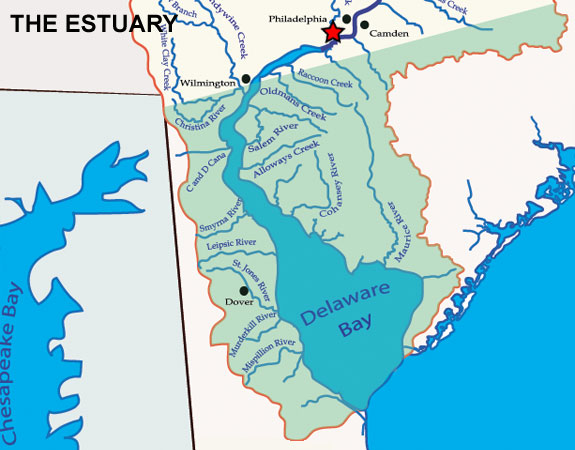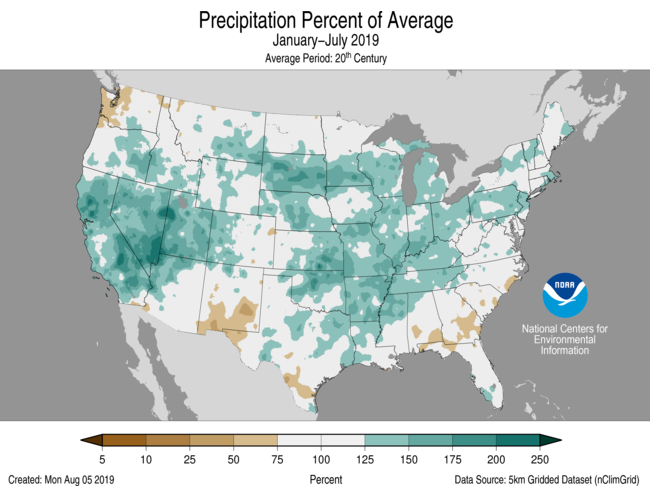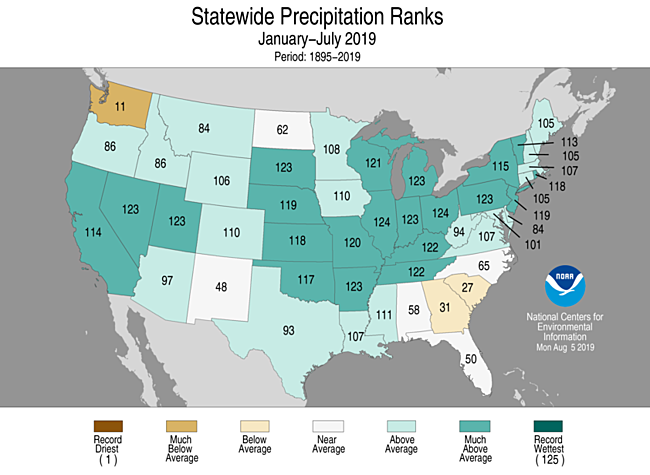General Discussion
Related: Editorials & Other Articles, Issue Forums, Alliance Forums, Region ForumsDEAD - two square miles of the Chesapeake Bay are a dead zone
Two-Mile Dead Zone Confirmed in Chesapeake Bay Due to Warm, Wet Weather
CAMBRIDGE, Md.- Warm weather is welcomed by many in the summer, but mix that with lots of rain, and it's a bad outcome for the Chesapeake Bay.
In late July, Maryland's Department of Natural Resources confirmed it found that 2-mile dead zone significantly worse than what they've found in years past.
Scientists say it's a combo of intense heat and freshwater pollution that's caused the abnormally large dead zone, wreaking havoc for some bay-area watermen, including Queen Anne's County waterman Dennis Anthony.
Scientists also say the rising temperatures have heated bay waters, adding to the dead zone and potentially harming an entire ecosystem that relies on oxygen to breathe.
http://www.wboc.com/story/40920265/twomile-dead-zone-confirmed-in-cheaspeake-bay-due-to-warm-wet-weather
Recursion
(56,582 posts)Delmette2.0
(4,157 posts)Wow, what do we call that phrase? Oxymoron or alternative facts? How about fertilizer pollution.?
That did sound rather an odd choice of words.
Stinky The Clown
(67,764 posts)As with so many other things when you screw around with mother nature’s recipe you can wind up with a disaster.
To be sure, fertilizer and other chemical runoff are a big part of the problem. But even something as simple as freshwater can be highly problematic.
BumRushDaShow
(128,516 posts)Delmette2.0
(4,157 posts)I learn something every day on DU.
![]()
PatSeg
(47,282 posts)BumRushDaShow
(128,516 posts)there IS an issue of the salinity needed for certain sea creatures to survive or thrive and such potentially being altered by excessive freshwater runoff - particularly seen around the mouth of the river outlets into the ocean/sea and in estuaries where creatures that normally live in brackish (mixed fresh/saltwater environments), can suffer.
I expect over an extended period of run off, the denser saltwater further out eventually sinks leaving the freshwater on top and forcing the sea life needing that higher salt content, down deeper into the water (where the water temps are also cooler and the light is more sparse than they are accustomed to).
I used to have reef and regular marine tanks about 20 years ago and keeping the salinity and alkalinity of them adjusted to optimum ranges for my corals, anemones, urchins, shrimp, brittlestars and fish, was a major maintenance undertaking to say the least! ![]()
There is definitely a fertilizer run-off problem too but that is a separate issue that usually causes the horrific algae blooms that choke out many other organisms. ![]()
Delmette2.0
(4,157 posts)the same problems in the Gulf of Mexico.
Thanks for the information.
![]()
Botany
(70,447 posts)BTW under Obama great work was being done on the Bay and its environs but under Trump not so much.
BumRushDaShow
(128,516 posts)(which is adjacent to the Chesapeake Bay) and those types of river/ocean areas often attract migratory birds and insects and other creatures that rely on the brackish water transitional zones there. Some cool stuff going on in those environments - https://www.delawareriverkeeper.org/estuary

So given the Chesapeake is so much larger, the impact has a potential to be be greater.
And as a note, I know for years, my mom would talk about the oysters that used to be prolific here in Philly (and around the entire midatlantic area) - literally like you see french fries today, with "oyster houses" (restaurants) everywhere. But the destruction of the Chesapeake Bay (from stuff like chemical sewage and fertilizer runoff among other things) pretty much killed that industry and it is only now, after so many years, slowly starting to recover. ![]()
Maggiemayhem
(807 posts)There has been some rain in Bedford Pa but once you get into WV, nothing. Ourstreams and creeks which are tributaries to Potomac are real rocky. We need rain desperately.
Delmette2.0
(4,157 posts)All I have seen is how much rain there is causing floods in major cities. Rural America is truly ignored in so many ways.
BumRushDaShow
(128,516 posts)and including across PA -

(since I think this image is dynamic and is constantly updated, I saved the above latest to re-post here)
Taken from NWS obs - https://www.weather.gov/marfc/NorthPrecipitationYTD
We normally get about 41" rain per year here in Philly and we are already at or beyond 36" with 4 months left of the year (and potential hurricane/tropical storm remnants that often tack on higher than normal rainfall still to come).
Nationally, the YTD is this -


From here - https://www.ncdc.noaa.gov/sotc/national/?Set-Language=ar
Botany
(70,447 posts)... bay's water and when they die they no longer are filtering the bay's water.
Crowman2009
(2,490 posts)...gets another wake up call. Which they will ignore. Like all right-wing assholes, they only learn until it's too late.
SweepPicker
(266 posts)my hometown and where I still reside. I'm 56 and have noticed major changes since my teen year's. It's difficult to even catch a fish. Back in the day, drop a line and BAM!
paleotn
(17,884 posts)So even in "normal" years, humans are still creating a Chesapeake dead zone. Nice. ![]()
Igel
(35,275 posts)When I was a kid there was a fish die-off on Back River. The water you could see from the bridge was silver with the fish, all belly up.
It wasn't human-caused. It was just hot and the fish suffocated.
Similarly, there have been other times when there were abnormally wet periods and that created die-offs in the Gulf, in the Chesapeake. Not everything that we think of as bad is unnatural. Nature produces lots of bad things all by itself.
Red Pest
(288 posts)Warm water temperatures - 1) less dissolved O2 in the water; 2) higher rates of metabolism, especially in the microbial population, which will deplete the dissolved O2.
Increased rainfall gives increased runoff which often contains high levels of nutrients such as fixed nitrogen (usually nitrates) from fertilizers (from agriculture and lawns). These nutrients will promote growth of both algae and microbes (especially bacteria) that are typically limited by the availability of fixed nitrogen (i.e. nitrates).
While algae and other photosynthetic organisms will initially add O2 to the water, they also secrete organic matter into the water further increasing microbial growth, which depletes the dissolved O2. Eventually, dissolved O2 becomes depleted and anoxic conditions ensue resulting in the death of O2 requiring animals (fish, shellfish, insects, etc.). The death of the O2-requiring organisms will release more organic material into the water, causing more microbial growth under anoxic/anaerobic conditions. Some of the bacteria will use sulfate or nitrate as alternative electron acceptors. Using the sulfate results in the formation of sulfide, which will further reduce any available O2 and actively kill plants in the water. All this contributes to the formation of dead zones.